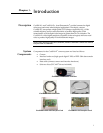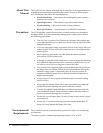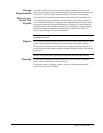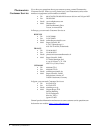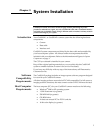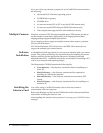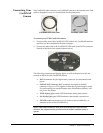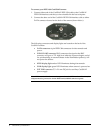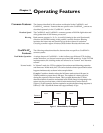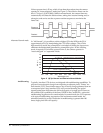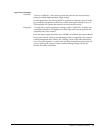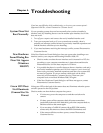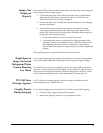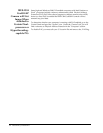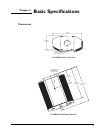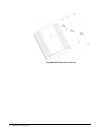
9
Chapter 3.
Operating Features
Common Features
The features described in this section are identical in the CoolSNAP
cf
and
CoolSNAP
ES
cameras. Features that are specific to the CoolSNAP
ES
camera are
described separately in the "CoolSNAP
ES
" section.
Readout Speed
The CoolSNAP
cf
and CoolSNAP
ES
cameras operate at 20 MHz digitization and
offer greater than 10 full frames per second.
Binning
Both cameras support 1x, 2x, 3x, 4x, and 8x binning in the serial (horizontal)
direction and flexible binning in the parallel (vertical) direction. Binning
increases the frame rate and sensitivity but at the expense of resolution.
Choosing a smaller region of interest (ROI) further increases the frame rate.
CoolSNAP
ES
Features
The following subsections describe features that are specific to CoolSNAP
ES
camera systems.
Dual Mode Operation
A unique feature of CoolSNAP
ES
is that it allows two different CCD clocking
modes that allow you choose between speed and NIR sensitivity. In the PVCAM
implementation, the clocking modes are referred to as "normal" and "alternate
normal".
Normal mode In "Normal" mode, the CCD is optimized for maximum anti-blooming protection
and frame rate. In this mode, the CCD can be clocked so that exposure and readout
happen simultaneously as shown in the example below.
Example: Consider a situation where the full frame readout time is 90 msec (at
20 MHz) and the exposure time is 200 msec. The readout of a frame will occur
during the exposure of the next frame. This is possible because the CCD has
alternate columns of sensitive and masked areas. While charge is integrating in the
sensor area, the previous frame, which is in the masked area, can be read out
(Figure 1). In this example, the time required to acquire the three-image sequence is
690 ms (3 x 200 + 90) and the frame rate is approximately 4.3 fps.
200ms
90ms
Exposure
Readout
200ms 200ms
90ms 90ms
Figure 1. Normal Mode, Overlapped



